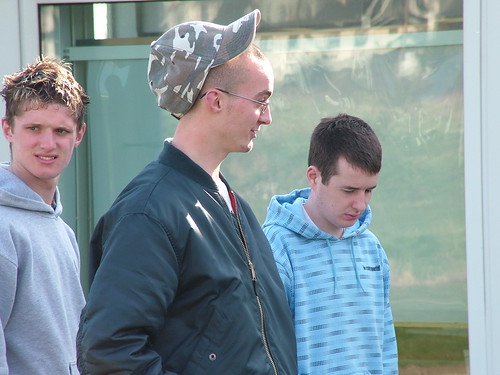 photo credit-Eric the Fish
photo credit-Eric the Fish
Creative Commons licenseA medical license is a precious thing. Most people that have one have worked darn hard to get it. They've put in decades of education, paid a lot of money, and sat for numerous exams. They usually feel proud to have earned their diploma, and often don't think much about their medical license, once they've passed the appropriate exams (that is, they don't think about it until they get close to their mandatory re-certification exams every 10 years). The license is often viewed as just "one more hoop" that they have to jump through before they can practice.
But perhaps they should think about their license a bit more. While their diploma from their university and certificates from post-graduate training are (mostly) their own, their license represents the social contract that society has with members of the professions. A medical license granted by the government gives one broad authority-you get to set up shop in your field, admit patients to the hospital, charge fees that are often paid (at least in part) by insurance companies and the government, and have people allow you to cause them all sorts of pain and embarrassment, all in the pursuit of curing or alleviating whatever ails the patient that walks through your door. The state allows members of the profession (collectively) to have great say in educational standards, and grants them at least some exclusivity (keeping competition from untrained persons suppressed, which also protects the public). In return, members of the profession have obligations towards the state/community in which they are licensed. They are to be honest, have a positive obligation to keep current in medical knowledge in their field, not practice in areas in which they are not trained, put the patients' welfare before their own, and always strive not to harm patients.
While it is upsetting when people in the community are hoodwinked by, say, a dishonest roofing contractor, people get more upset when a doctor acts unethically. Even in today's busy world, where people see multiple different doctors, the medical encounter between patient and physician remains an intensely personal one, "protected" by this social contract. It is because of this that people get more upset.
Fortunately, the profession, and the pubic, have a way of "righting the ship" when things go wrong. State medical boards are usually mainly staffed by physicians, with a few members of the general public. All of these members are usually appointed by the governor of the state, in a (fairly) non-political manner. The only compensation usually received typically is a small per diem to cover travel expenses to the capital city (which is usually where meetings are held).
In any profession there will be frauds and crackpots. That being said, my experience is that the vast majority of physicians have worked very hard to get where they are, and really seem to be motivated to do the best for their patients. But in order to retain the trust of the public it is necessary that those who practice fraudulently are weeded out.
It is a big deal to take someone's license away. As I mentioned, they have spent decades of their life preparing to sit for their exams, and invested hundred's of thousands of dollars, before ever seeing their first paying patient. Thus investigations of impropriety usually take time. A medical board is not in the business of stifling innovative practice, and must guard against disciplining doctors whose only crime is being smarter than the norm. But the board IS charged with protecting the public, and thus has to identify and discipline those who ignore their responsibility to practice in accord with scientifically sound practices, and who would view their license as merely a cash generating vehicle.
The Maryland State Board of Physicians has suspended the medical license of Mark Geier, M.D., in an emergency measure to protect the public while he has a hearing before final disposition. In
their 48 page report, the Board details how Geier practiced bad medicine (making mis-diagnoses of precocious puberty without standard physical exam or laboratory findings being documented), performed fraudulent research (no consent forms, totally improper in-house IRB committee, poor research design and execution), and allowed his untrained and unlicensed son to practice medicine in his office in his absence.
Kathleen (Neurodiversity Weblog) and
Prometheus (A Photon in the Darkness) both have very good posts detailing a lot of the bad things he's done, and why he richly deserves to have his license yanked.
Reading through this report, one thing is eminently clear. Mark Geier will never practice medicine in Maryland again. Boards don't get this much damning evidence documented, and then let someone off with a slap on the wrist. While his final discipline may read something like "License revoked with no re-application for at least 5 years", there is no way that any future board will let him get his license back. Not after this.
In regards the other states that Geier has licenses to practice medicine, his license remains active at this time. That (in most cases) will automatically change once his permanent suspension or revocation action takes effect. Most state boards automatically put the same restriction on your license as other states do, unless you can prove to them that you don't deserve it. I am not aware of anyone ever overturning one of these automatic revocations. So while he technically can still practice somewhere else, one can take solace that that option will soon close for him.
While this SHOULD put an end to those spinning wild theories and foisting wholly unproven treatments on autistic patients, it won't. But perhaps it might give a few of those unethical practitioners that have medical licenses just a bit of pause now, as they realize that perhaps their own hucksterism might have the light of truth shined on it next.
Joe







